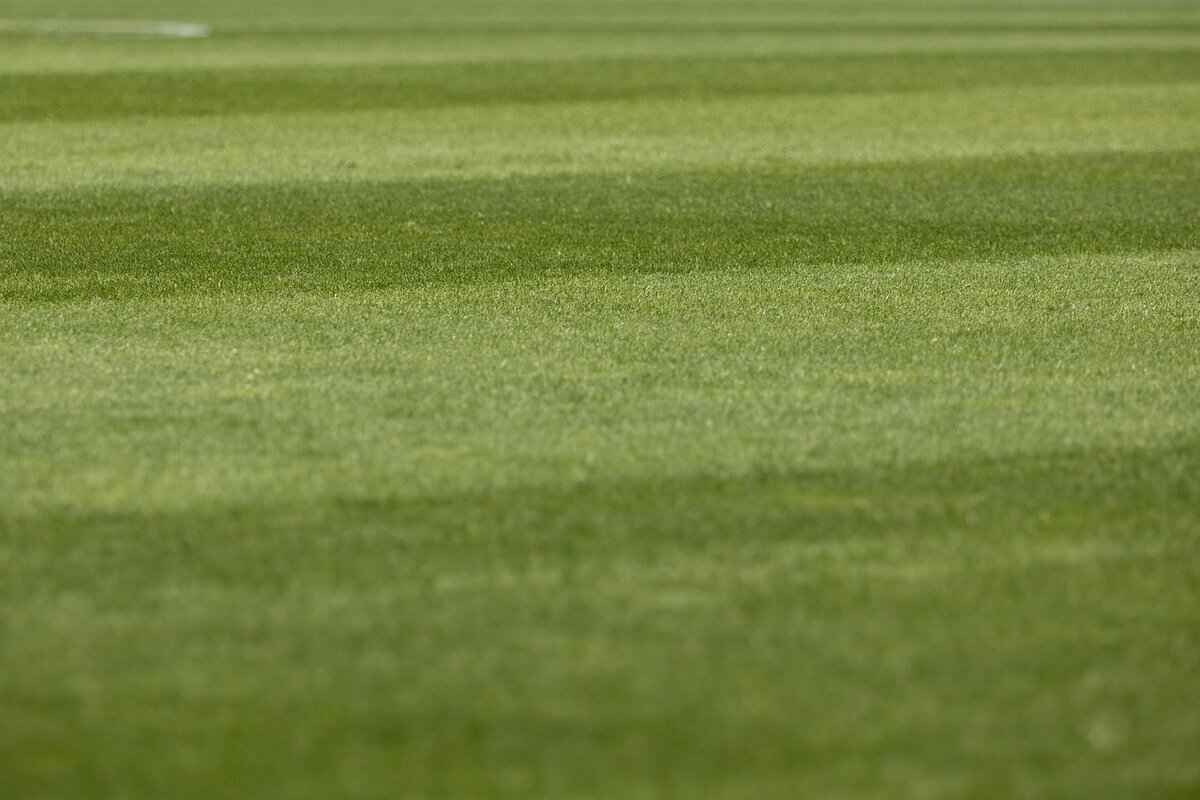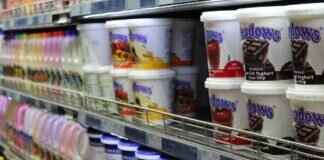This article delves into the fascinating question of how many holes exist in a football, looking closely at the design, purpose, and significance of these features in the context of the game and equipment.
The Design of a Football
Understanding the design of a football is crucial for grasping its functionality. A football is uniquely shaped to facilitate better handling, throwing, and kicking during gameplay. Typically, a standard football has a prolate spheroid shape, which is essential for its aerodynamic properties.
The Purpose of Holes in a Football
The holes in a football, often referred to as seams, serve specific purposes primarily related to aerodynamics and grip. These features enhance performance and ensure the ball behaves predictably during play.
- Aerodynamics and Ball Flight
- The Role of Seams
- Impact on Kicking
The aerodynamics of a football significantly impact its flight path. The seams help control airflow, allowing for better spirals and distance when thrown. The design of the seams allows the ball to cut through the air more efficiently.
Seams are essential in football design, providing structure and influencing how the ball cuts through the air. They contribute to the stability and accuracy of throws, making them a critical aspect of the ball’s construction.
The design of the seams also affects how the ball behaves when kicked. A well-constructed football allows for better control and precision, enabling players to achieve their desired trajectory more effectively.
Grip and Handling
Grip is another critical aspect influenced by the seams in a football. The texture and layout of these seams enhance player control, especially in wet or slippery conditions, which can be pivotal during a game.
Historical Evolution of Football Design
The design of footballs has evolved significantly over the years. Understanding this evolution provides context for the current design and the number of seams present in modern footballs.
- Early Football Designs
- Modern Football Innovations
Early footballs were made from various materials and had different shapes. The transition to modern designs included refining the number of seams for improved performance.
Today’s footballs incorporate advanced materials and technologies, which have influenced the design of seams. Innovations focus on enhancing durability and performance in various playing conditions.
Common Misconceptions About Football Holes
There are many misconceptions regarding the number of holes in a football. Clarifying these myths can help fans and players better understand the equipment they use.
- The Myth of Extra Holes
- Understanding the Count
Some believe that footballs have more holes than they actually do. This misconception often arises from misunderstandings about the ball’s design and its functional components.
The actual count of holes in a standard football is a topic of debate. Many people assume there are multiple holes, but the reality is that the standard football typically has eight seams that create the illusion of holes.
The Significance of Holes in Football
The holes in a football are more than just design elements; they play a vital role in the game. Understanding their significance enhances appreciation for the sport and its equipment. The interplay between design and functionality is key to the performance of the football, influencing everything from passing to kicking.
In conclusion, the number of holes in a football may not be as straightforward as it seems. The intricate design and purpose of these seams are critical to the performance of the ball, affecting how it is thrown, kicked, and handled. By understanding these aspects, players and fans alike can gain a deeper appreciation for this essential piece of sports equipment.

The Design of a Football
is a fascinating topic that combines art, science, and engineering. Understanding the intricacies of how a football is designed is crucial for grasping its functionality during gameplay. A football is not just a simple sphere; it is uniquely shaped to facilitate better handling, throwing, and kicking, which are essential elements of the game.
Typically, a football has an ovoid shape, which helps it travel through the air with minimal resistance. This design is not arbitrary; it is the result of extensive research and development aimed at optimizing performance. The curvature of the ball allows for a better grip and control, making it easier for players to execute precise throws and kicks.
One of the most critical aspects of a football’s design is the presence of seams. These seams, often referred to as holes, are not merely aesthetic; they serve specific purposes that enhance the ball’s functionality. The seams help create air pockets around the ball, which can significantly affect its aerodynamics. When thrown, the airflow around the ball is influenced by these seams, allowing for a more stable and predictable flight path.
- Aerodynamics and Ball Flight: The design of the seams contributes to how the ball cuts through the air. This control over airflow is vital for achieving a tight spiral, which is essential for long-distance throws.
- Impact on Kicking: The shape and seam placement also affect how the ball behaves when kicked. Players can achieve greater accuracy and control, allowing them to execute various kicking techniques effectively.
Furthermore, the texture of the ball’s surface, influenced by the seams, enhances grip and handling. In wet or slippery conditions, this grip becomes even more critical, as it allows players to maintain control over the ball, reducing the likelihood of fumbles or inaccurate passes.
The evolution of football design has been fascinating, with a significant shift from early designs made of leather and other materials to modern iterations that utilize advanced synthetic materials. These innovations have allowed for a more consistent and durable football, capable of withstanding the rigors of professional play.
In the past, footballs were often criticized for their unpredictable behavior due to inconsistent designs. However, today’s footballs are engineered with precision, ensuring that the number and placement of seams are optimized for performance. This evolution reflects a deeper understanding of sports science and the mechanics of ball flight.
Despite the advancements, there are still common misconceptions about football design. Many people believe that a football contains more holes than it actually does. This misunderstanding often stems from a lack of awareness regarding the purpose of the seams and how they function in relation to the ball’s overall design.
To clarify, the actual count of holes or seams in a standard football is typically around eight. This number is carefully chosen to balance performance with durability. Understanding this count is essential for players and fans alike, as it sheds light on the engineering behind the game.
In summary, the design of a football is a complex interplay of geometry, materials, and aerodynamics. The seams and overall shape are not just for show; they serve vital functions that enhance gameplay. By understanding these design elements, players can better appreciate the equipment they use and improve their performance on the field.

The Purpose of Holes in a Football
The design of a football is not merely aesthetic; it serves crucial functional purposes that enhance gameplay. Among these features, the holes—often referred to as seams—are vital components that contribute to the overall performance of the ball.
The holes in a football serve specific purposes, primarily related to aerodynamics and grip. These features enhance performance and ensure the ball behaves predictably during play, making it easier for players to execute their skills effectively.
The aerodynamics of a football significantly impact its flight path. The holes, or seams, help control airflow around the ball, allowing for better spirals and distance when thrown. When a quarterback releases the ball, the way it spins and cuts through the air is influenced by the design of these holes. A well-thrown football can travel longer distances with greater accuracy, making it essential for successful gameplay.
Seams are essential in football design, providing structure and influencing how the ball interacts with the air. They contribute to the stability and accuracy of throws. The strategic placement of these seams allows players to grip the ball more securely, which is crucial for making precise throws under pressure. The design ensures that the ball maintains its shape, allowing for consistent performance.
Holes also affect how the ball behaves when kicked. The design allows for better control and precision, making it easier for players to achieve their desired trajectory. Kickers rely on the configuration of the holes to determine how the ball will respond upon impact. This is especially important during field goals and kickoffs, where accuracy can make the difference between winning and losing.
Grip is another critical aspect influenced by the holes in a football. The texture and layout of these holes enhance player control, especially in wet or slippery conditions. A football with optimal grip allows players to maintain better control during throws and catches, reducing the likelihood of fumbles. This is particularly important in high-stakes situations where every play counts.
The design of footballs has evolved significantly over the years. Understanding this evolution provides context for the current design and the number of holes present. Early footballs were made from various materials, including leather, and had different shapes. The transition to modern designs included refining the number of holes for improved performance.
In the early days of football, the design was rudimentary, focusing primarily on functionality rather than aerodynamics. As the sport grew, so did the understanding of how ball design impacts performance. The introduction of synthetic materials allowed for more consistent shapes and textures, leading to the modern football we know today.
Today’s footballs incorporate advanced materials and technologies, which have influenced the design of holes. Innovations focus on enhancing durability and performance in various playing conditions. Manufacturers continually experiment with different seam configurations and materials to create footballs that perform optimally under all circumstances.
There are many misconceptions regarding how many holes are in a football. Clarifying these myths can help fans and players better understand the equipment they use. Some believe that footballs have more holes than they actually do. This misconception often arises from misunderstandings about the ball’s design and its functional components.
The actual count of holes in a standard football is a topic of debate. The design typically includes eight panels, each with seams, but the number of visible holes can vary based on the specific model and manufacturer. Clarifying this count helps dispel confusion and provides a clearer understanding of the ball’s structure and its impact on gameplay.
In summary, the holes in a football are more than just design elements; they play a vital role in the game. Understanding their significance enhances appreciation for the sport and its equipment, allowing players and fans alike to recognize the intricacies behind this beloved game.
Aerodynamics and Ball Flight
The aerodynamics of a football play a crucial role in determining its flight path. Understanding how the ball interacts with the air is essential for players and enthusiasts alike. The design of a football, particularly the holes and seams, significantly influences its performance during throws and kicks.
When a football is thrown, it must cut through the air efficiently to achieve optimal distance and accuracy. The seams of the football are not merely aesthetic; they serve a vital purpose in managing airflow. These seams create a turbulent boundary layer around the ball, which helps reduce drag and allows for a cleaner flight path. This aerodynamic design is essential for achieving tight spirals and long-distance throws.
The shape of the football, combined with its seams, helps stabilize the ball in flight. When thrown correctly, the ball’s rotation creates a stable flight pattern, allowing it to travel further and with greater precision. The tension in the seams affects how the ball spirals; a well-thrown ball will have a tight spiral, which is less affected by wind resistance.
- Improved Distance: The aerodynamics of a football allow it to travel further when thrown with the right technique.
- Enhanced Accuracy: A well-thrown ball that utilizes its aerodynamic properties will have a more predictable flight path.
- Wind Resistance: The design helps the ball cut through the wind, reducing the chance of being knocked off course.
Moreover, the material of the football also contributes to its aerodynamic capabilities. Modern footballs are often made from synthetic materials that enhance durability while maintaining a lightweight structure. This combination allows for better handling and control, especially in various weather conditions.
The seams on a football are strategically placed to aid in grip and control. They provide a tactile surface for players, allowing for better handling during throws and catches. This is particularly important for quarterbacks, who rely on precision and control to deliver accurate passes. The seams also help players grip the ball more securely, reducing the likelihood of fumbles.
In addition to grip, the seams play a role in how the ball interacts with the air. They create small vortices that help stabilize the ball’s flight. This is why you often hear coaches emphasize the importance of a good spiral; a tight spiral minimizes air resistance and maximizes distance.
The aerodynamics of a football are equally important when it comes to kicking. The design of the holes and seams influences how the ball behaves upon contact with the foot. A well-designed football allows for better control and precision, making it easier for players to achieve their desired trajectory.
For kickers, understanding the aerodynamics can make a significant difference in performance. A ball that is kicked with the right technique will travel further and with more accuracy, thanks to its aerodynamic properties. The ability to manipulate the ball’s flight path is crucial in high-pressure situations, such as game-winning field goals.
In conclusion, the aerodynamics of a football, influenced by its holes and seams, are fundamental to its performance. From enhancing the distance and accuracy of throws to improving grip and control during kicks, these design features play a vital role in the game. Understanding these elements not only enhances appreciation for the sport but also aids players in developing their skills.
The Role of Seams
In the world of football, the seams play a pivotal role in the overall design and functionality of the ball. These seams are not just aesthetic features; they are integral to how the ball performs during various phases of the game. Understanding the significance of seams can provide deeper insights into the mechanics of football.
The structure of a football is uniquely designed to enhance its performance, and the seams contribute significantly to this design. They are crucial for maintaining the shape of the ball, ensuring that it remains round and aerodynamic throughout its use. This is particularly important when considering how the ball interacts with the air as it moves. The seams help to manage airflow around the ball, which can affect its trajectory and stability.
One of the most critical aspects of a football’s seams is their influence on aerodynamics. When a player throws the ball, the seams create a disturbance in the airflow around it. This disturbance helps to create a spiral effect, allowing the ball to travel farther and more accurately. A well-thrown football with tight seams can achieve impressive distances, making it easier for receivers to catch the ball even under challenging conditions.
Moreover, the seams also play a key role in how the ball behaves when kicked. The design of the seams allows for better control and precision, enabling players to achieve their desired trajectory. When a kicker strikes the ball, the seams help to stabilize it, reducing wobble and ensuring a cleaner flight path. This is essential for scoring goals and executing successful plays.
In addition to their aerodynamic benefits, the seams also enhance grip and handling. The texture created by the seams provides players with a better hold on the ball, especially in wet or slippery conditions. This increased grip is vital for quarterbacks making precise throws and for receivers trying to secure catches under pressure.
Historically, the design of footballs has evolved significantly, reflecting advancements in materials and technology. Early footballs were often made from animal bladders and leather, with seams that were not as refined as those seen today. Over the years, manufacturers have focused on improving the seam design to enhance performance, leading to the modern footballs we see in play today.
Modern innovations have introduced new materials that not only enhance durability but also improve the functionality of seams. These advancements have led to footballs that can withstand various weather conditions, ensuring that players can perform optimally regardless of the environment.
Despite the importance of seams, there are many misconceptions surrounding them. Some people mistakenly believe that the number of seams directly correlates with the quality of the ball. However, it is the design and construction of the seams that truly matter. A football with fewer but well-constructed seams can outperform one with many poorly designed seams.
In summary, the role of seams in a football is multifaceted and crucial for optimal performance. From enhancing aerodynamics to improving grip and handling, seams are integral to the functionality of the ball. Understanding their importance not only enhances appreciation for the sport but also informs players and fans alike about the intricacies of football design.
Impact on Kicking
When it comes to the game of football, the design of the ball plays a crucial role in its performance on the field. One of the most significant aspects of this design is the presence of holes, or seams, which greatly influence how the ball behaves when kicked. Understanding this impact can help players enhance their skills and improve their game.
The holes in a football are not merely aesthetic; they serve a functional purpose that directly affects the ball’s trajectory and control. When a player kicks the ball, the way it interacts with these holes can determine the distance it travels and the precision of its path. This is particularly evident in various kicking techniques, such as the instep drive or the side-foot shot.
One of the primary benefits of the holes is that they help maintain stability during flight. The design allows for a more consistent airflow around the ball, reducing turbulence and enabling players to achieve a more accurate kick. This is crucial during competitive matches, where even the slightest deviation can affect the outcome.
Moreover, the control offered by the holes allows players to execute complex maneuvers with ease. For instance, a well-placed kick can result in a curve or dip, making it difficult for goalkeepers to predict the ball’s final destination. This ability to manipulate the ball’s movement is essential for players looking to score or create opportunities for their teammates.
| Type of Kick | Effect of Holes |
|---|---|
| Instep Drive | Increases power and distance |
| Side-foot Shot | Enhances accuracy and control |
| Chip Shot | Allows for delicate lifts over defenders |
In addition to enhancing control and precision, the holes also contribute to the grip of the ball, especially in various weather conditions. A football that provides better grip allows players to kick with confidence, knowing that their foot will make solid contact with the ball. This is particularly important during rainy or muddy conditions, where a slippery surface can lead to mishaps.
Furthermore, the evolution of football design has led to innovations that optimize the placement and structure of these holes. Modern footballs are engineered using advanced materials that enhance durability while maintaining the functional benefits of the holes. This evolution reflects the ongoing commitment to improving player performance and the overall quality of the game.
In summary, the impact of holes on kicking cannot be overstated. They play a vital role in enhancing a player’s ability to control the ball, achieve desired trajectories, and execute various kicking techniques effectively. As players continue to train and develop their skills, understanding the significance of these design elements can provide them with a competitive edge on the field.
Grip and Handling
is a crucial element in the performance of a football, significantly influenced by the design and arrangement of the holes within the ball. These holes, often referred to as seams, are not merely aesthetic features; they play an essential role in enhancing a player’s control over the ball, particularly in challenging conditions.
When considering the grip of a football, it is important to understand that the texture and layout of the holes are specifically engineered to improve handling. The unique design allows players to maintain a firm hold on the ball, reducing the likelihood of slips and fumbles. This is especially vital during wet or slippery conditions, where the risk of losing control increases dramatically.
In addition to improving grip, the holes also contribute to the overall aerodynamics of the football. The arrangement of seams affects how air flows around the ball during play. This airflow is crucial for maintaining stability and accuracy in passes and kicks. A well-designed football will have holes that facilitate a smooth trajectory, allowing for better distance and precision when thrown or kicked.
Moreover, the grip provided by the holes enhances a player’s ability to execute complex maneuvers. For instance, quarterbacks rely on their grip to throw accurate spirals, while receivers need a solid hold to catch passes under pressure. The confidence gained from a reliable grip allows players to perform at their best, regardless of the environmental conditions.
Another aspect worth noting is that the grip of a football can vary based on the materials used in its construction. Modern footballs often incorporate advanced synthetic materials that not only improve durability but also enhance grip. These innovations allow players to perform optimally, even in adverse weather conditions.
In summary, the grip and handling of a football are significantly influenced by the design and arrangement of its holes. The texture and layout enhance player control, particularly in wet or slippery conditions, while also contributing to the ball’s aerodynamics. Understanding these elements is essential for players and fans alike, as they highlight the intricate design that goes into creating a football that meets the demands of the game.

Historical Evolution of Football Design
The design of footballs has undergone a remarkable transformation throughout history, reflecting changes in technology, materials, and the game itself. By examining this historical evolution, we gain valuable insights into how modern footballs have been shaped and the significance of their design features, including the number of holes.
In the early days of football, balls were crafted from various materials such as leather, animal bladders, and even inflated pig bladders. These primitive designs often resulted in irregular shapes, which affected the ball’s performance on the field. The lack of uniformity in shape and size made it challenging for players to control the ball effectively.
As the game evolved, so did the design of the football. The introduction of seams and stitching allowed for better shape retention and durability. Early footballs featured fewer holes, which were primarily used for lacing and closure. However, these designs limited the ball’s aerodynamics and handling capabilities.
With the advent of synthetic materials in the late 20th century, football design underwent a significant overhaul. Manufacturers started to experiment with different shapes and sizes, aiming to enhance the ball’s performance. The introduction of thermoplastic polyurethane (TPU) and other advanced materials improved durability and weather resistance, leading to a new era in football design.
Modern footballs feature a more complex arrangement of holes and seams. The number of holes has increased to optimize aerodynamics, allowing for better spirals and increased distance when thrown. The seams now play a crucial role in controlling airflow around the ball, contributing to its flight stability.
Today’s footballs are engineered using cutting-edge technology. Innovations such as computer-aided design (CAD) and 3D printing have revolutionized how footballs are made. Manufacturers can now create balls with precise specifications, ensuring consistency in performance across different playing conditions.
Furthermore, the development of microfiber materials has allowed for enhanced grip and control, particularly in wet conditions. The strategic placement of holes and seams ensures that players can handle the ball effectively, regardless of the weather.
Despite the advancements in football design, there are still many misconceptions regarding the number of holes in a football. Some enthusiasts believe that modern footballs have an excessive number of holes, leading to confusion about their actual count.
One prevalent myth is that footballs have more holes than they actually do. This misconception often arises from a misunderstanding of the ball’s design and the visible seams. In reality, a standard football typically features eight holes that facilitate the stitching and structural integrity of the ball.
Clarifying the actual count of holes in a football helps dispel confusion and provides a clearer understanding of the ball’s structure. The design of these holes is not arbitrary; it is carefully calculated to enhance the ball’s performance, ensuring that it meets the needs of players at all levels.
The holes in a football are not merely aesthetic; they are essential for the ball’s functionality. They play a vital role in aerodynamics, grip, and overall performance, contributing to the game’s dynamics. Understanding their significance enhances appreciation for the sport and the equipment used.
In conclusion, the evolution of football design has been marked by significant advancements that have improved the game. From the early days of irregular shapes to the modern, technologically advanced footballs we see today, each development has contributed to a better playing experience. The number of holes in a football, while often misunderstood, is a testament to the careful consideration that goes into designing equipment that meets the demands of players and the game itself.
Early Football Designs
Football, as we know it today, has undergone a remarkable transformation since its inception. The were characterized by a variety of materials and shapes that reflected the rudimentary understanding of aerodynamics and gameplay dynamics. Initially, these balls were crafted from animal bladders, leather, and even cloth, leading to a diverse range of shapes that often resembled more of a prolate spheroid than the modern oblong shape we recognize now.
The transition from these early designs to the modern football was not merely aesthetic; it was a significant evolution that focused on enhancing performance and player experience. The early footballs were often heavy and difficult to handle, which led to the need for design improvements. With the introduction of more sophisticated materials, such as synthetic composites, the weight and durability of footballs improved dramatically. This shift allowed for a more consistent shape and size, which is essential for predictable gameplay.
One of the most critical aspects of modern football design is the refinement of the number and arrangement of holes, or seams, on the ball’s surface. These seams are not just decorative; they play a crucial role in the aerodynamics of the ball. The configuration of the holes helps control airflow as the ball moves through the air, allowing for better spirals and distance when thrown. This aerodynamic efficiency is vital for quarterbacks aiming to deliver precise passes over long distances.
In addition to aerodynamics, the seams also significantly impact the grip and handling of the ball. The texture created by the seams enhances player control, particularly in adverse weather conditions. Players can maintain a better grip on the ball, which is essential for both throwing and catching. This improved grip is a direct result of the thoughtful design choices made by manufacturers in response to player feedback and performance analysis.
The historical evolution of football design is a fascinating journey that mirrors advancements in technology and materials science. In the early days, the focus was primarily on functionality rather than performance. However, as the game evolved, so did the understanding of how design elements, such as the number of holes, could influence gameplay. Manufacturers began to experiment with different seam configurations, leading to the modern football designs we see today.
Today’s footballs are engineered with precision, incorporating advanced technologies that enhance their performance. Innovations like bladder technology and synthetic leather have made footballs more resilient and suitable for various playing conditions. The design of the holes has been optimized to ensure that the ball maintains its shape and performance characteristics, regardless of whether it’s used in a professional game or a casual pickup match.
Despite the advancements in football design, misconceptions about the number of holes in a football persist. Some fans and players may believe that footballs have more holes than they actually do, often due to confusion about the ball’s structure and its functional components. The actual count of holes in a standard football is typically around eight to twelve, depending on the specific design and manufacturer. Understanding this count is essential for players and fans alike, as it provides insight into the engineering that goes into creating a high-performance football.
In conclusion, the design of early footballs laid the groundwork for the sophisticated equipment used today. The evolution from various materials and shapes to a standardized design with optimized holes has significantly impacted how the game is played. By appreciating the intricacies of football design, players and fans can gain a deeper understanding of the sport and the equipment that defines it.
Modern Football Innovations
In the world of sports, particularly in football, the evolution of equipment is a fascinating subject. The modern football has undergone significant advancements, primarily driven by innovations in materials and design. These improvements not only enhance the ball’s performance but also its durability, making it suitable for various playing conditions.
Today’s footballs are crafted using cutting-edge materials such as polyurethane, thermoplastic polyurethane (TPU), and advanced synthetic fibers. These materials contribute to a football’s overall performance, providing better grip and control. The incorporation of these materials has also led to a reduction in water absorption, ensuring that the ball maintains its weight and shape even in wet conditions.
The seams of a football play a crucial role in its aerodynamics and overall functionality. Modern footballs utilize high-frequency welding techniques to create seamless designs, which significantly reduce drag during flight. This innovation allows for a smoother trajectory, enabling players to throw spirals with greater accuracy and distance. Furthermore, the absence of traditional stitching minimizes the risk of wear and tear, enhancing the ball’s longevity.
Grip is paramount in football, especially in challenging weather conditions. Modern footballs feature textured surfaces that improve handling. These textures are strategically designed to provide optimal grip, allowing players to maintain control whether they are throwing, kicking, or catching the ball. The use of materials with varying textures also facilitates better performance in both dry and wet conditions, making the ball versatile for all types of play.
Technological advancements have also influenced the weight distribution of footballs. Modern designs ensure that the weight is evenly distributed, which aids in achieving a balanced flight path. This innovation is particularly beneficial for kickers, as it allows for more predictable and accurate kicks. Additionally, the integration of smart technology, such as sensors, has begun to emerge in football design, providing real-time data on performance metrics like speed and trajectory.
As sustainability becomes increasingly important, manufacturers are also focusing on creating environmentally friendly footballs. Innovations in this area include the use of recycled materials and eco-friendly production processes. These efforts not only reduce the environmental impact of football production but also appeal to a growing segment of environmentally conscious consumers.
Looking ahead, the future of football design promises even more exciting innovations. Researchers and manufacturers are exploring the integration of biometric technology that could revolutionize how players interact with the ball. This could include features that track player performance and provide feedback, further enhancing training and gameplay.
In conclusion, modern football innovations have transformed the game, making it more dynamic and enjoyable for players and fans alike. The advancements in materials, design, and technology not only improve performance but also ensure that the game evolves in tandem with the needs of its players. As we continue to see these developments, the future of football looks promising, with endless possibilities for enhancing the sport.

Common Misconceptions About Football Holes
When it comes to the game of football, many fans and players harbor misconceptions about the design and structure of the ball itself. One of the most frequently debated topics is the number of holes in a football. This article aims to clarify these misunderstandings and provide an accurate understanding of the football’s design.
Many people assume that the number of holes in a football is greater than it actually is. This myth often stems from confusion about the ball’s seams and panels. In reality, a standard football is designed with eight panels, which are stitched together to create the familiar shape. Each panel has seams that contribute to the overall aerodynamics of the ball.
One common misconception is that the ball has additional holes for grip or aerodynamics. These assumptions can lead to confusion among players and fans alike. In fact, the seams on a football are often mistaken for holes. The seams are crucial for the ball’s performance, as they help maintain its shape and influence how it travels through the air. However, they do not count as separate holes.
The actual count of holes in a standard football can vary based on the specific design and manufacturer. Generally, the focus should be on the number of panels and seams rather than individual holes. For instance, a typical football will have two main seams running the length of the ball, which are essential for its aerodynamic properties.
- Seams: Important for maintaining the ball’s shape.
- Panels: Typically eight, which contribute to the ball’s overall design.
- Holes: Misunderstood; the ball does not have additional functional holes.
The seams play a significant role in how a football performs during play. They not only help in maintaining the ball’s shape but also influence its flight path. When thrown, the seams allow for better control over the ball’s spin and trajectory, making it easier for players to execute precise passes.
Understanding the aerodynamics of a football is essential for players. The design of the seams allows for efficient airflow around the ball, which is crucial for achieving a stable flight. This is particularly important during long passes, where the ball’s ability to cut through the air can make a significant difference in distance and accuracy.
Another misconception is that the ball’s grip is solely dependent on the number of holes or seams. While the texture of the ball does enhance grip, it is primarily the material and design of the ball that determine how well players can handle it. Modern footballs are often made from synthetic materials that provide excellent grip, regardless of the number of seams.
The evolution of football design has also contributed to these misconceptions. Early footballs were made from leather and had different shapes and seam configurations. As technology advanced, the design was refined to improve performance and durability. Understanding this historical context helps clarify why certain design elements, like seams and panels, became standardized in modern footballs.
In summary, the number of holes in a football is often misrepresented. By understanding the actual design and function of seams and panels, players and fans can appreciate the engineering behind the football. This knowledge enhances their appreciation for the game and the equipment used, dispelling myths and fostering a deeper connection to the sport.
The Myth of Extra Holes
is a common misconception among football enthusiasts and casual fans alike. Many people believe that a football contains more holes than it actually does, leading to confusion about its design and functionality. This article aims to clarify this myth, providing insights into the actual structure of a football and the purpose of its seams and holes.
To begin with, it’s essential to understand that a standard football is designed with a specific number of seams, which are often mistaken for holes. These seams are not merely decorative; they serve critical functions that enhance the ball’s performance during play.
- Seam Structure: The seams of a football are crafted to provide stability and shape. They help maintain the ball’s aerodynamic properties, allowing it to cut through the air more efficiently. This design is crucial for achieving accurate throws and powerful kicks.
- Grip Enhancement: The texture created by the seams also improves grip. Players need to handle the ball effectively, and the seams contribute to this by offering a tactile surface, especially in challenging weather conditions.
Another aspect contributing to the myth of extra holes is the visual perception of a football’s surface. When observing a football closely, the seams create an illusion of additional openings. However, this is simply a result of the ball’s design rather than an indication of actual holes.
In reality, a standard American football has a specific number of seams, typically eight, which are strategically placed around its oval shape. These seams play a pivotal role in how the ball behaves when thrown or kicked. They help control the airflow around the ball, which is essential for achieving a stable flight path.
Understanding the Count of holes or seams in a football can help dispel confusion. While some may argue about the exact number, the consensus is that the seams are the primary feature contributing to the ball’s performance, not actual holes. This understanding is crucial for both players and fans, as it emphasizes the importance of design in sports equipment.
Moreover, the evolution of football design has seen a shift towards more advanced materials and technologies. Modern footballs are made from synthetic materials that enhance durability and performance. These advancements have also influenced the design of the seams, making them more effective in various playing conditions.
In conclusion, the myth of extra holes in a football is primarily a misunderstanding of its design. By clarifying the structure and purpose of seams, we can appreciate the engineering that goes into creating a high-performance football. Understanding these elements not only enhances our knowledge of the game but also deepens our appreciation for the sport as a whole.
Understanding the Count
of holes in a football is a fascinating topic that often sparks debate among players, fans, and sports enthusiasts alike. The structure of a football, including its seams and holes, plays a crucial role in its performance during gameplay. In this section, we will delve into the specifics of how many holes are typically found in a standard football, dispelling myths and clarifying the actual count.
To begin with, it’s essential to recognize that the term “holes” in the context of a football often refers to the seams and stitching that hold the panels of the ball together. A regulation football is constructed from several panels, typically made of synthetic leather or a similar material. The seams are not merely aesthetic; they are integral to the ball’s aerodynamics and overall performance.
In most standard footballs, there are eight panels, and each panel is stitched together, creating a series of seams. This design leads to a common misconception: many people believe that the seams themselves count as holes. However, when discussing the actual number of holes, we must clarify that the count refers to the visible openings created by the stitching, which are not uniform or easily quantified.
- Common Misconception: Many assume that footballs have a fixed number of holes, often citing figures that are inaccurate.
- Actual Count: The number of visible holes can vary based on the manufacturer and model, but a typical football will have around 12 to 16 visible holes when considering the stitching.
The purpose of these seams and holes extends beyond mere construction. They play a significant role in the ball’s grip and aerodynamics. The way these holes are designed affects how the ball travels through the air, allowing players to achieve better control during throws and kicks. The stability provided by the seams ensures that the ball maintains its shape and trajectory, which is vital during gameplay.
Furthermore, the evolution of football design has seen various innovations aimed at enhancing performance. Modern footballs are engineered using advanced materials that not only improve durability but also optimize the function of the seams and holes. This evolution highlights the importance of understanding the count and design of these features, as they directly impact player performance and the overall experience of the game.
In conclusion, while the debate over the actual count of holes in a football may seem trivial, it underscores a deeper understanding of the sport’s equipment. By clarifying the number of holes and their significance, players and fans can gain a greater appreciation for the intricacies of football design. Whether you are a seasoned player or a casual fan, recognizing the role of these elements in a football can enhance your understanding and enjoyment of the game.

Conclusion: The Significance of Holes in Football
The holes in a football are not merely aesthetic features; they are integral to the performance and functionality of the ball. Understanding their significance can greatly enhance one’s appreciation for the game and the equipment used. This article delves into the role of these holes, highlighting their impact on gameplay and their evolution over time.
The Importance of Holes in Football Design
Holes, or seams, in a football are crucial for several reasons. Primarily, they aid in aerodynamics, which directly affects how the ball travels through the air. When a football is thrown, the air needs to flow smoothly around it to maintain a stable flight path. The design of the ball, including the placement of these holes, helps to control this airflow, allowing for tighter spirals and longer distances.
Aerodynamics: How Holes Affect Ball Flight
The aerodynamics of a football can be complex. The seams create a turbulent layer of air around the ball, which reduces drag and helps the ball maintain its velocity. This is particularly important for quarterbacks who need to throw the ball accurately over long distances. The ability to achieve a perfect spiral is often attributed to the ball’s design, including the placement and number of holes.
Impact on Kicking Techniques
In addition to throwing, the holes in a football also influence kicking. The design allows players to strike the ball in a way that enhances control and precision. For instance, a well-placed kick can result in a higher trajectory, making it easier to navigate through defenders or achieve a longer distance. The interaction between the foot and the ball is significantly affected by the texture and layout of these holes.
Grip: Enhancing Player Control
Grip is another critical aspect influenced by the holes in a football. The texture provided by these holes enhances a player’s ability to handle the ball, especially in adverse weather conditions. Wet or slippery conditions can make it challenging to maintain control, but the design of the ball helps mitigate these issues. Players often find that they can grip the ball more effectively, leading to improved performance during games.
Historical Context: Evolution of Football Design
The design of footballs has undergone significant changes throughout history. Early footballs were often made from animal bladders and had a much different shape and structure. As the sport evolved, manufacturers began to refine the number and placement of holes to optimize performance. Understanding this evolution provides valuable insight into why modern footballs are designed the way they are.
Modern Innovations in Football Design
Today’s footballs incorporate advanced materials and technology that enhance their performance. Innovations such as synthetic materials and improved seam construction have led to footballs that are not only more durable but also perform better in various playing conditions. The design of the holes has also been refined to ensure that they contribute positively to the ball’s overall performance.
Common Misconceptions About Football Holes
There are several misconceptions surrounding the number and purpose of the holes in a football. Some fans might believe that there are more holes than there actually are, often due to misunderstandings about the ball’s design. Clarifying these myths can help players and fans alike better understand the equipment used in the sport.
Understanding the Actual Count of Holes
The actual count of holes in a standard football can vary, but it is essential to distinguish between the seams and the functional holes. This understanding helps dispel confusion and provides a clearer picture of the ball’s structure and how it affects gameplay.
In summary, the holes in a football are vital components that contribute to the ball’s performance, affecting everything from aerodynamics to grip. Recognizing their significance not only enhances the appreciation for the sport but also informs players and fans about the intricate design of the equipment they use.
Frequently Asked Questions
- How many holes are in a standard football?
The actual count of holes in a standard football can be a bit confusing. Generally, a football has eight holes, which are the seams that help in its aerodynamics and grip. This design is crucial for performance during gameplay.
- What is the purpose of the holes in a football?
The holes in a football serve multiple purposes. They enhance aerodynamics, allowing for better flight paths, and improve grip, making it easier for players to handle the ball, especially in challenging weather conditions.
- Do all footballs have the same number of holes?
While most standard footballs have eight holes, variations can exist depending on the design and brand. However, the essential function of these holes remains consistent across different models.
- Can the design of the holes affect gameplay?
Absolutely! The design and placement of the holes can significantly impact how the ball behaves in the air and during kicks. A well-designed football allows players to achieve better control and precision in their plays.
- Are there any misconceptions about football holes?
Yes, many people mistakenly believe that footballs have more holes than they actually do. This misconception often stems from a lack of understanding of how the ball is constructed and its functional components.














